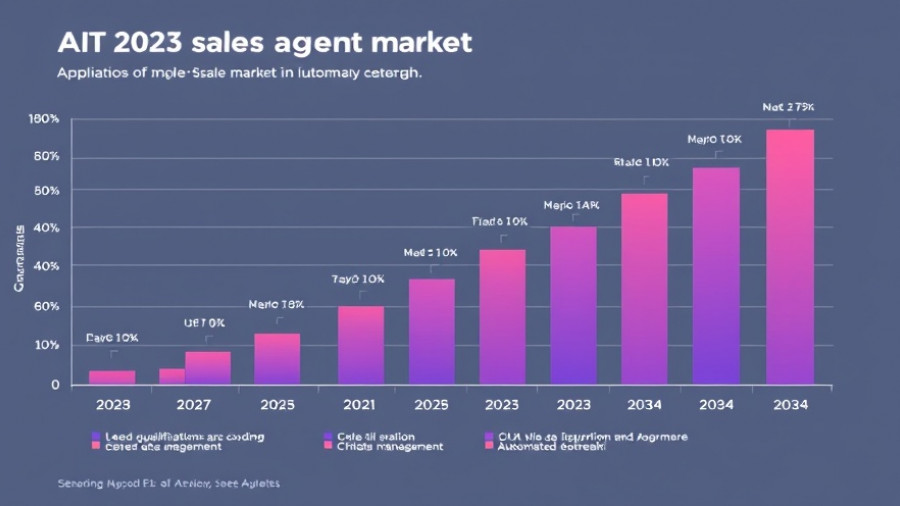
AI Sales Agents: Revolutionizing Business Interactions
The landscape of sales is transforming rapidly as businesses increasingly adopt AI sales agents to streamline operations and improve customer experiences. Valued at approximately USD 3.25 billion in 2024, the global AI sales agent market is on track to expand dramatically, predicted to reach USD 130.79 billion by 2034 at a staggering compound annual growth rate (CAGR) of 44.7%. With North America leading the market, capturing over 39.63% of revenue share in 2024, AI agents are poised to become essential tools for sales teams across various industries.
Understanding the Types of AI Sales Agents
AI sales agents can generally be categorized into two types: Autonomous AI Sales Agents and Assistive AI Sales Agents. Autonomous AI agents operate with minimal human intervention, managing tasks such as lead qualification and direct customer engagement. They utilize advanced technologies like natural language processing (NLP) to understand and respond to customer inquiries effectively, mimicking human interaction. In contrast, Assistive AI agents are designed to support sales teams by handling routine administrative tasks, such as data entry and appointment scheduling.
Benefits of AI Integration in Sales
Organizations using AI sales agents report significant perks, from increased productivity to higher sales conversion rates. For instance, research from Duke University reveals that 94.1% of marketing teams have adopted AI solutions recently, reflecting a growing acknowledgment of AI's impact. Businesses leveraging AI tools often see sales increase between 3-15%, with lead conversion rates skyrocketing by as much as 30% following integration. The streamlined processes of AI systems also yield considerable cost reductions; companies report a 7.2% decrease in operational overhead.
Trends Driving Growth in the AI Sales Market
Several factors are propelling the rise of AI sales agents:
- Efficiency Demand: As buyers seek faster, more personalized service, AI sales agents provide the necessary automation to enhance customer interactions.
- Advanced NLP and Machine Learning: Breakthroughs in NLP and machine learning allow AI agents to analyze vast customer data and personalize outreach campaigns effectively.
- Improved Customer Insights: Businesses are leveraging predictive analytics to better understand customer preferences, leading to tailored marketing strategies.
Future Projections and Potential Challenges
The global AI sales agent market is expected to grow tremendously, particularly in the Asia-Pacific region, which shows a remarkable CAGR of 49.5%. However, challenges remain, including the need for effective integration with existing sales technology, ensuring data privacy compliance, and overcoming employee resistance to AI adoption. Studies indicate that while workers see AI as a tool to enhance their roles, fears of job displacement persist.
Conclusion: Embracing the AI-Driven Future
As businesses continue to navigate this evolving landscape, the successful integration of AI into sales operations is crucial. Organizations must prioritize clear objectives, leverage training for teams to collaborate effectively with AI, and understand the potential of AI-driven data insights to enhance customer engagement.
In conclusion, embracing AI agents is not merely a trend but a strategic necessity for firms aiming to maintain competitiveness in today’s market. Companies that harness the power of AI can expect transformative changes in their sales workflows, ensuring substantial ROI and improved customer satisfaction.
 Add Row
Add Row  Add
Add 




Write A Comment